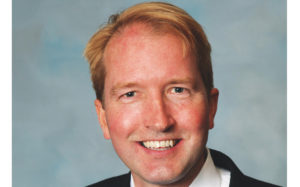
On the morning of Nov. 9, I received a phone call from my sister. My father had been found unresponsive in his Manhattan apartment and was being taken to the hospital. Ok, I told her, call me when you know which one. I was rattled but optimistic. They don’t take dead people to the hospital. I knew vascular surgeons at most of the major New York City medical centers. Hopefully, they would bring him to one of them. I have relied on this network before when I couldn’t be there in person for my family. Minutes later, my sister called back. She couldn’t speak. He was gone.
When we spoke again, she was at his apartment with the medical examiner. My father was in good health at 75 years old. He went to the gym daily and was not on any medications. He had just gone to sleep and never woke up. I had already canceled my clinic and made preparations to fly up to NYC, but, as I spoke with my sister, one thing became clear. I wasn’t going anywhere. In the NYC of November 2020, there are no wakes, no funerals. I couldn’t even get into his apartment to go through his things. Since my mother had died years earlier, his place would be locked by the police until his will was certified—a process which could take weeks.
I slowly realized I would not see him again. There would be no embalming since there was no wake. He was to be cremated that evening. “I can take a picture of him?” my sister offered helpfully. “Yes, ok,” I said, before: “Wait, no. Do NOT do that!” Walking around with a picture of my father’s body on my phone was not going to help this situation.
My sister found his “will.” It appears my father, ever the pragmatist, had simply copied my mother’s, crossed her name off, and replaced it with his own. Good thing we were not dividing up the Vanderbilt fortune. He had also left some handwritten instructions, prepared years earlier. These were composed in the manner of a parent who was used to getting disobeyed. Amid his fiscally and legally dubious instructions on closing his retirement accounts, there were directions to bury him next to our mother. The phrasing suggested he expected us to grab a couple of shovels and get it done ourselves.
With no opportunity for closure, I didn’t know what to do. I just went back to work. Guilt came in waves. When did we last speak? I checked my phone: Halloween. Not terrible, but not great. I try to stay in frequent contact, but, as you all know, sometimes the days just bleed. We had seen each other very little this year. Before the pandemic, my father would visit frequently, delighting in spending time with his grandchildren. Although having only female siblings and raising just my sister and me, I think my father was woefully unprepared for the violence and property damage that comes with watching three boys. He had planned to attend the Vascular Annual Meeting this year in Toronto to help mind our children. He wouldn’t have even complained when he found out a few other vascular surgeons would be dropping off their kids as well.
As it disrupts travel and gatherings, the pandemic also interferes with our pathways of communication. After the first wave of condolences from our extended family, people I didn’t know started to reach out, looking for their friend. There were a lot of them; my father was the mayor of everywhere. Since we have the same unusual name, I was easily found on Google. Calls kept coming into my office with a similar story: I’m looking for your father; he hasn’t called me back in a few days. My emails exploded with inquiries about my father and a swarm of fervent EPIC suspension notifications since I had dared not to open my inbox for 12 hours.
There are losses more objectively tragic than a 75-year-old father, such as a child or spouse. At 51 years old, I am still clinging desperately to the “gone too soon” demographic. Regardless, there is something indescribably disorienting about a parent’s death. It’s like losing a limb. You wake up one morning, get out of bed, then BAM, your face hits the floor. Where the #$%^ is my leg? It’s been there my entire life. There is a feeling of being erased. Your early memories become fragile, as you are now their sole caretaker. For my children, this is their first real experience with losing a loved one. One day they had a grandfather, then I told them they didn’t. They have no context in which to mourn.
Psychologists place great emphasis on the object permanence milestone, but object impermanence is the more brutal lesson. My experience is now familiar and commonplace. Hundreds of thousands of Americans have lost a parent during the pandemic. Our usual methods of closure have been stripped from us. People are dying in isolation, and the ones they leave behind must often grieve alone. Our failure to control the pandemic has had profound psychological consequences beyond the endless death toll. Our country has risen to similar challenges before, and I believe it will again if we learn from the mistakes we made this year. To accomplish this, we must create a complete account of the costs we have endured.
Malachi Sheahan III is the Claude C. Craighead Jr. professor and chair in the division of vascular and endovascular surgery at Louisiana State University Health Sciences Center in New Orleans. He is the medical editor of Vascular Specialist.













That was heart wrenching and loving. I mourn by your side with your dads death just happening. He was fit, and active and just ‘always’ there. He filled the role as our family’s patriarch brilliantly. As always, I love you deeply. Maryanne